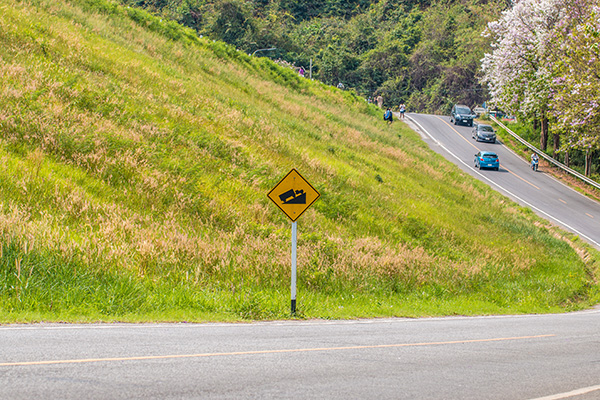
Driving on mountain roads can be exhilarating, but it also presents unique challenges, especially when it comes to braking. There are some effective techniques to brake safely on mountain roads without risking overheating your brakes.
Understanding the Challenge
Braking on mountain roads involves navigating steep descents and tight turns, which can significantly strain your vehicle's brakes. The continuous application of brakes generates heat, and if not managed properly, it can lead to brake fade or even failure.
What is Brake Fade
Brake fade is a phenomenon where prolonged or aggressive braking leads to a loss of stopping power. In mountain driving, the constant strain on brakes can exacerbate brake fade, compromising safety. Understanding this issue is crucial for drivers, as it highlights the importance of proper braking techniques and maintenance to ensure safe mountain travel.
Techniques for Safe Braking
Anticipate and Plan Ahead
One of the most crucial aspects of mountain driving is anticipation. Plan your braking in advance, especially before entering a curve or descending a steep grade. This proactive approach reduces the need for sudden or heavy braking, minimizing heat buildup.
Utilize Engine Braking
Instead of relying solely on your brakes to slow down, leverage your vehicle's engine and transmission to assist with braking. Downshifting to a lower gear, also known as engine braking, helps to slow down the vehicle without putting excessive strain on the brakes.
Use Light and Smooth Braking
When applying the brakes, do so lightly and smoothly.
Avoid sudden or aggressive braking, as it not only increases heat but also reduces traction, especially on slippery mountain roads.
Gradually apply pressure to the brake pedal to maintain control and stability.
Maintenance Tips for Brake Health
Check Brake Fluid Regularly
Ensure that your brake fluid is at the proper level and free from contaminants. Contaminated or low brake fluid can affect braking performance, leading to increased heat buildup.
Inspect Brake Pads and Rotors
Regularly inspect your brake pads and rotors for wear and tear. Worn brake pads can increase stopping distances and contribute to brake overheating. Replace them promptly if they show signs of excessive wear.
Cool Down Periods
During long descents or periods of heavy braking, take breaks to allow your brakes to cool down. Pull over in a safe location and give your brakes time to dissipate heat before resuming your journey.
Ensure your brakes are mountain-ready with South Denver Automotive. Book your brake service today and drive confidently, knowing your vehicle is equipped to handle any terrain.